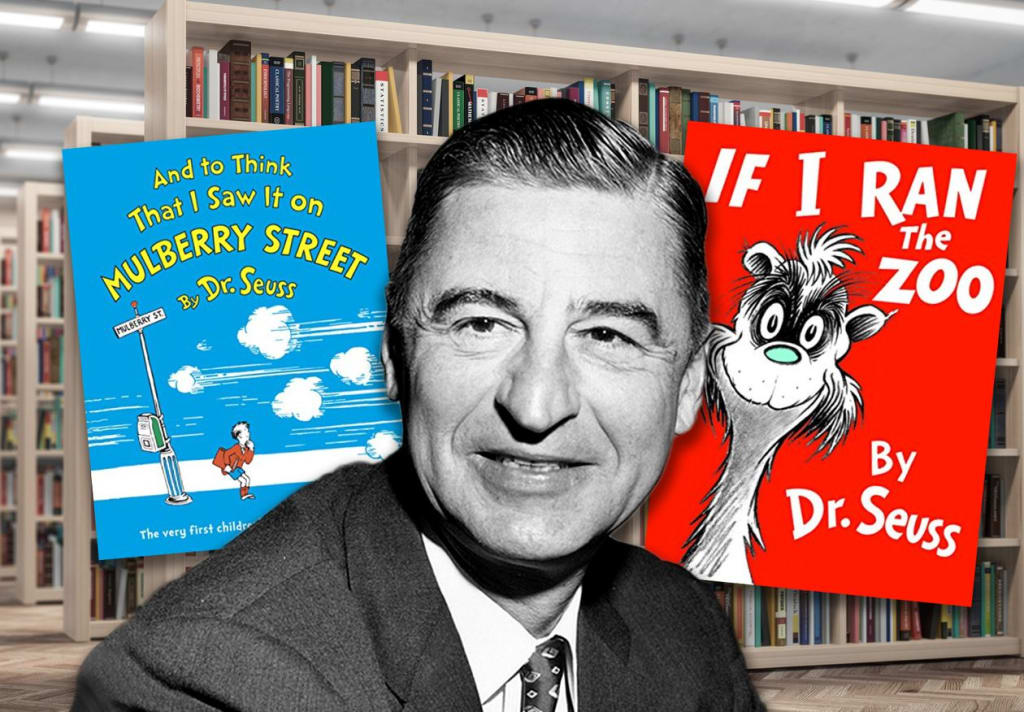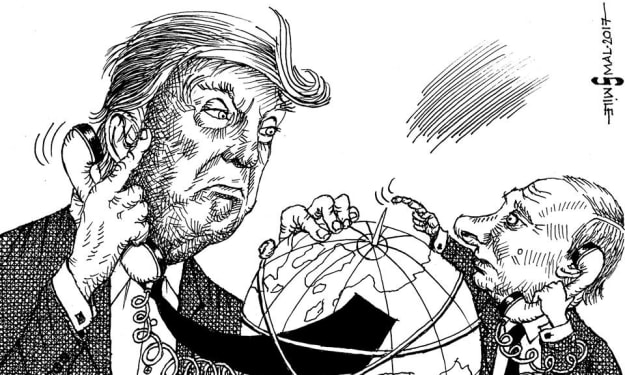A Response to the Whiny Brats (re: Doctor Seuss)
I've just about had it.

On the Vocal forums the other day, I saw an “article”: a “Seussian” examination of what reactionaries and guilty parties are calling “cancel culture.” The article in question essentially complained, in poorly-metered half-rhyme, that you cannot express your opinion without fear of being “cancelled” and shut down. The author then went on an anti-transgender rant, again in that same poorly-metered mess of a rhyme scheme. In the comments, I read messages from other Vocal authors thanking him for being willing to share his opinion in a timbre I could only describe as disappointing. And I’ve been wondering why I was so disappointed. (I mean, I know why I was disappointed. No one should be lauded for sharing toxic opinions. But I’ll get to that later.)
I work at a bookstore. My first week of working there, I had five different customers come up to me, ask if we had the six Doctor Seuss titles that were “cancelled,” and then dealt with varying levels of disappointment. One shrugged it off and left. Another had a very thoughtful conversation with me about media and the ways in which we interact with and draw our discourse from it. A third brought forth a written statement about “cancel culture” that she recited stiffly at me, which I largely tuned out, but remember that she concluded it with something along the lines of, “I’ve been around long enough to know that when you start pulling books from shelves, dark days are coming.” But we did not pull the books from the shelves. The Seuss Estate did, quietly, over a year ago. We only notice because they made a statement, about a year after the fact.
Some on the right wing are going to argue, even after hearing that information, that they only pulled those books to avoid a media firestorm or a pithy hashtag (#DoctorSeussIsOverParty): a preemptive self-cancellation, if you will. To this, I argue, is it really that bad for a brand that prides itself on wonder, imagination, and wholesome lessons to reconsider some of the work under its control that does not harmonize with that mission? What is wrong with trying to be better? Because we’ve seen how images and phrases in art alter social attitudes toward individuals. Worst Home Alone II Cast Member Donald “Hamberders” Trump repeatedly screamed words like “China Virus” and “Kung Flu,” and anti-Asian hate crimes spiked in the past year. Anti-transgender discourse and imagery remains ever-present in the world, championed by individuals like Author Of Very Little Of Worth J.K. Rowling and Certifiable Jackass John Cleese, while in the meantime non-cisgender individuals live under constant threat to their safety and lives. The Seuss Estate wants to cut down on that regressive noise, and people are up in arms about it, because they believe that it is their right to express opinions that threaten, harm, and kill people who are different from them.
I am not going to share the article that sent me down this rabbit hole for the same reason that brought me to Vocal in the first place: Attention is money. I am not going to provide the author of that piece the satisfaction of having the narrative that they’re spewing be profitable. And perhaps that buzz is what makes me just the slightest bit suspicious of the Seuss Estate’s choice to make a statement that they pulled those books: They, ultimately, profited off of it. As someone working a point of sale of Doctor Seuss’s books, I’ve never seen more Doctor Seuss books fly off the shelves, into the hands of both right-wingers who are afraid of what Doctor Seuss books might be cancelled next, and of left-wingers who are happy to support a publisher that actively works to build a more equitable world. Wokeness, for corporations, is profitable, and I’m still torn about whether that’s a good or a bad thing. But, ultimately, they profit. Fox News can spew their drivel about Cancel Culture and acquire higher ratings because people will tune into literally anything. Ted Cruz can sell off signed copies of a book he didn’t write so he can rake in donations. Everyone, especially people on the right wing, is being played like a fiddle, and those up top are profiting the most.
But I like to think that Doctor Seuss is a story of redemption. He started off deeply flawed. A lot of his earlier work went after people of color. He was a firm supporter of internment camps for Japanese Americans. His consistent unfaithfulness in his marriage led to the suicide of his wife Helen Palmer. Doctor Seuss was a flawed man racked with guilt who, after coming to terms with his own flaws, attempted to make reparations and wrote book after book teaching children to be kind, thoughtful, and imaginative. The Lorax champions environmentalism. Horton Hears a Who encourages us to listen to the underrepresented and underserved. As an artist myself, I like to hope that the work that exists in the mainstream exists to do more than rake in a profit. I loved The Lorax growing up, both the book and the movie. I am a firm believer in compassion, and that’s what Doctor Seuss, after all is said and done, stands for. “Cancel Culture” is just another word for accountability in the media and in our culture. The Doctor Seuss brand is synonymous with personal accountability. His work is vibrant and thoughtful and creative. Regressive ideals being championed in his name are none of those things.
I do not want to personally profit off of this story. Because of that, I will be donating the earnings from this article to the Asian American Advocacy Fund, a grassroots effort that advocates on behalf of AAPI individuals in Georgia and beyond. You can learn more about them here.
About the Creator
Steven Christopher McKnight
Disillusioned twenty-something, future ghost of a drowned hobo, cryptid prowling abandoned operahouses, theatre scholar, prosewright, playwright, aiming to never work again.
Venmo me @MickTheKnight
Enjoyed the story? Support the Creator.
Subscribe for free to receive all their stories in your feed. You could also pledge your support or give them a one-off tip, letting them know you appreciate their work.






Comments
There are no comments for this story
Be the first to respond and start the conversation.